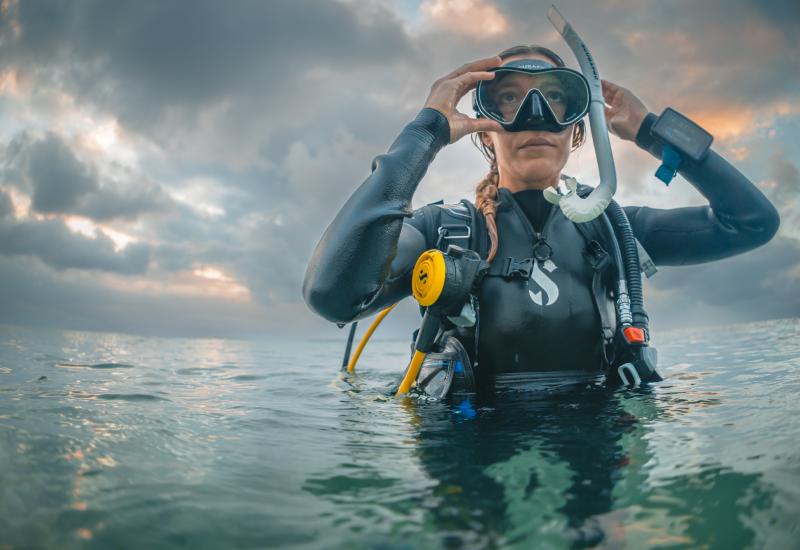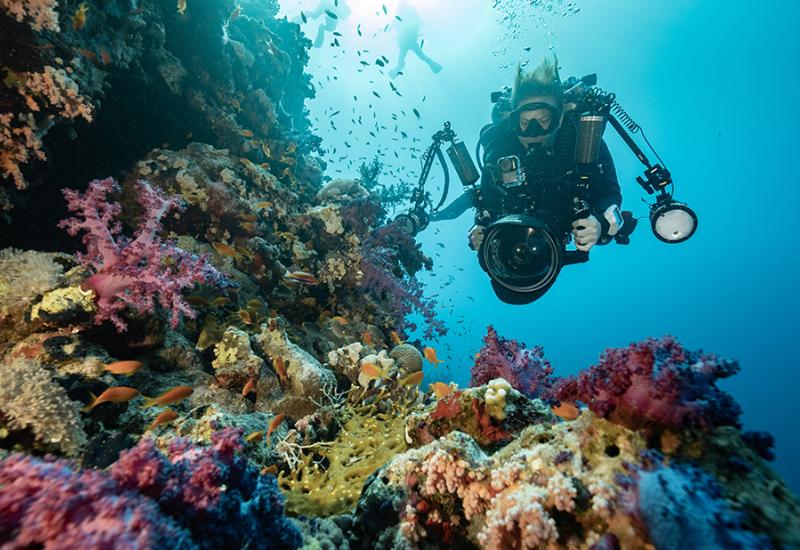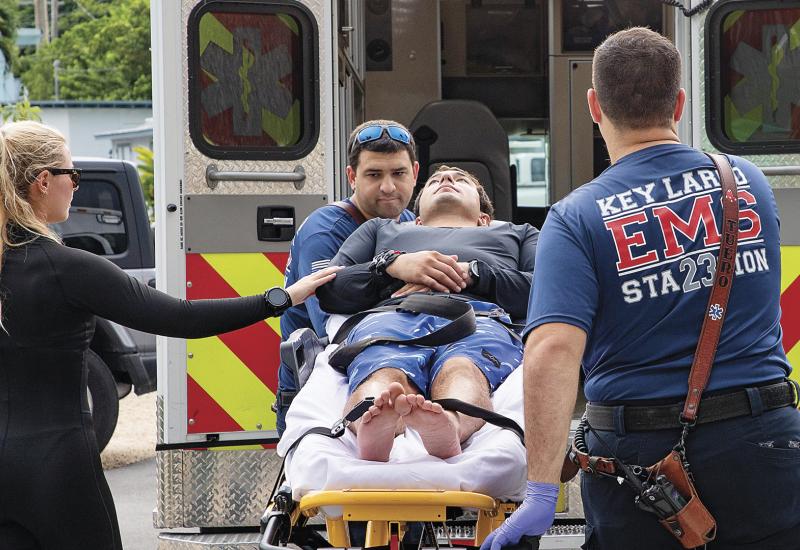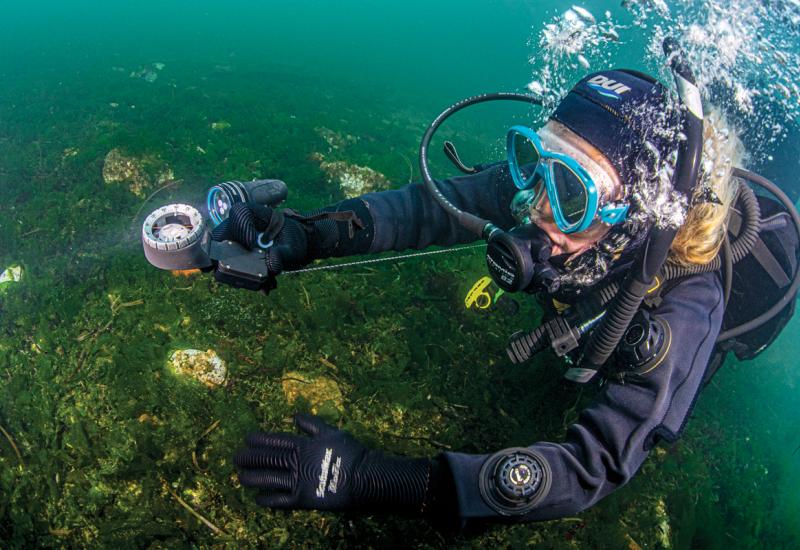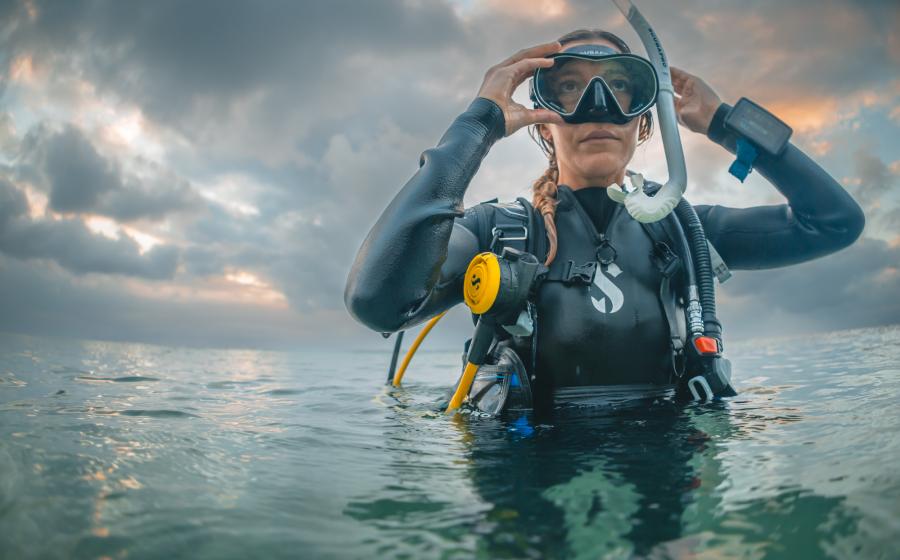Fight or Flight | Lessons for Life

Steven P. HughesA panicked diver forgets the golden rule: never hold your breath.
Donna was excited about the dive, and also a little bit nervous. She was looking forward to taking this next step in her training, and overall she was glad to be there with her instructor. She had read so many interesting articles and had seen so many inspiring pictures of shipwrecks, but knew she needed experience diving deeper before she could see them for herself. Everything was going great. Until Donna started to feel like she couldn’t breathe.
The Diver
Donna was a 56-year-old certified diver. She had learned to dive two years prior and had made a total of 20 dives within the limits of her training. She decided to take an Advanced Open Water Diver course to gain experience diving deeper.
Donna’s doctor had signed off on her medical form, which acknowledged that in the past she had problems equalizing her ears and took a prescribed decongestant for it. She also had a history of anxiety. She took a prescription anti-anxiety medication to help control it.
The Dive
For the deep-dive portion of Donna’s advanced open-water training, she met her dive instructor at a local quarry. The center of the quarry had a deep well that went down to 120 feet. A descent line and float were permanently attached for training purposes at the site.
Weather conditions were perfect, with the air temperature in the 70s and the water temperature in the 60s. It hadn’t rained in a week, so visibility was good for the freshwater quarry.
Donna, her instructor and another student headed down the descent line and stopped at a platform set up at 90 feet. Her instructor had her perform the necessary tasks at depth and then Donna waited while the other student demonstrated the same skills to the instructor.
The Accident
When they had completed their tasks, the three divers ascended to 60 feet along the permanent line. Once they reached that depth, the instructor had planned to lead the two students off on a dive around the quarry. But when they got there, Donna signaled that she was out of air. The instructor checked Donna’s submersible pressure gauge and showed her that she still had air remaining in her tank.
At that point, Donna bolted for the surface. Her instructor attempted to slow her down but was unable to get her under control. Witnesses on the surface saw Donna lose consciousness moments after she broke the surface. Seeing what happened, several other divers quickly brought her to shore, began resuscitation efforts and contacted emergency services. Donna was transported to a hyperbaric chamber for treatment, but she ultimately never regained consciousness. An autopsy indicated gas in her heart and coronary arteries.
Analysis
This column has covered panic and how it affects a diver underwater many times. Often, one small situation triggers a cascade of problems that grow in the diver’s mind, causing tunnel vision. The only perceived option is flight to the surface. An important consideration in this accident is tied to Donna’s prescription for anti-anxiety medication and her history of anxiety. As in most freshwater quarries, it was cold and dark at depth, but the instructor didn’t note any problems. In Donna’s case, there was no obvious precipitating event. Donna had indicated that she was out of air, but she had approximately half a tank left. In her panic, she likely felt she couldn’t inhale deeply enough to get enough air to her lungs. At that point, in her mind, she had no other option but to flee.
Drs. David and Lynn Colvard did extensive research into panic as it relates to dive accidents. In a recent email to me, David noted that in his findings, anticipatory anxiety was the greatest cause of dive accidents. “When we reviewed hundreds of follow-up narratives from our 2000 diver study of over 12,000 divers, the thing that came out most clearly was that all the panicked divers were anxious before they ever entered the water. This was true of student and experienced divers,” he said.
The effects of the accident are pretty clearly an arterial gas embolism. In her panic, Donna ascended rapidly but most likely didn’t remember to exhale as she ascended. She bolted toward the surface from about 60 feet.
Rapidly expanding air trapped in the lungs can tear a hole in the lung tissue. There are a number of potential outcomes when this happens. The air can collect underneath the skin around the neck or enter the bloodstream and send an air bubble to the brain, causing nearly instant stroke-like symptoms. In Donna’s case, the air entered her heart and the coronary arteries, making it impossible for the heart to pump blood. She likely died of cardiac arrest.
Remember the golden rule of diving: Never hold your breath.
Lessons For Life
- Check in with yourself. Panic often begins before you descend, so if you’re feeling anxious, communicate with your buddy or dive leader about your concerns.
- If you aren’t comfortable, call the dive. Any diver can call any dive at any time for any reason. You can work out any problems on the surface.
- Consult a doctor. If you have a medical condition, discuss it with a doctor trained in diving medicine. Very little research has been conducted into the effects of pressure on medication, but you should understand the risks that come with each underlying medical condition.

